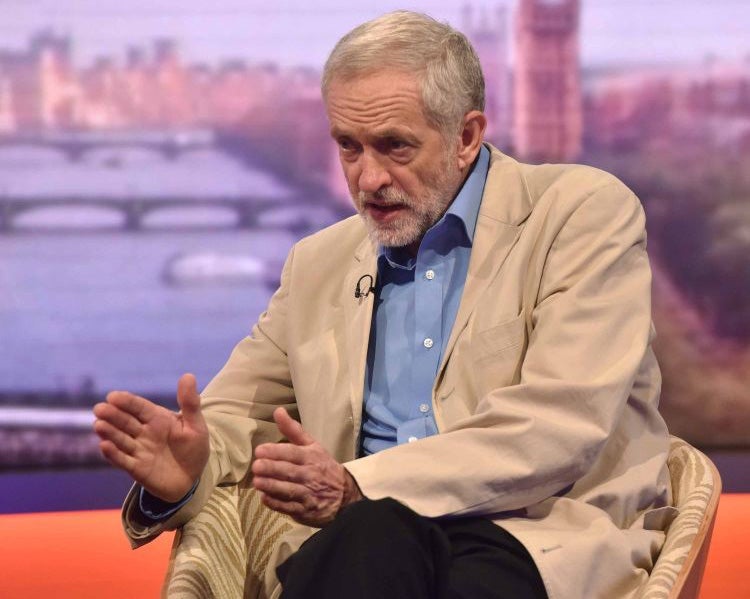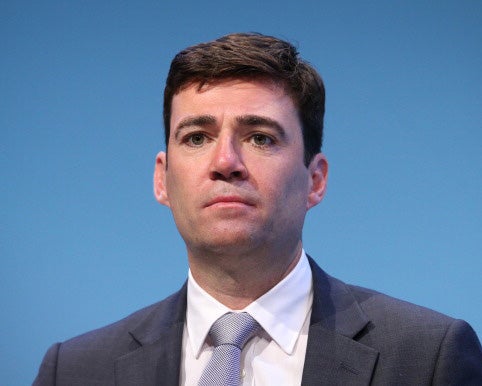Labour leadership contender Jeremy Corbyn says 'we can learn a great deal from Karl Marx'
MPs call for Harriet Harman to suspend contest amid fears over new members

Your support helps us to tell the story
From reproductive rights to climate change to Big Tech, The Independent is on the ground when the story is developing. Whether it's investigating the financials of Elon Musk's pro-Trump PAC or producing our latest documentary, 'The A Word', which shines a light on the American women fighting for reproductive rights, we know how important it is to parse out the facts from the messaging.
At such a critical moment in US history, we need reporters on the ground. Your donation allows us to keep sending journalists to speak to both sides of the story.
The Independent is trusted by Americans across the entire political spectrum. And unlike many other quality news outlets, we choose not to lock Americans out of our reporting and analysis with paywalls. We believe quality journalism should be available to everyone, paid for by those who can afford it.
Your support makes all the difference.The Labour hierarchy has rejected demands for its fractious leadership contest to be suspended following claims that large numbers of hard-left “infiltrators” and Tory mischief-makers have signed up with the common aim of electing Jeremy Corbyn.
Amid mounting alarm within the party mainstream that the influx could tip the result in his direction, the Islington North MP said the rise in membership was prompted by the enthusiasm of young activists becoming engaged in politics.
Mr Corbyn sidestepped questions about whether he was a Marxist, but insisted he was not championing a “revolutionary” policy platform.
Labour has gained 52,000 members since Ed Miliband’s election defeat, pushing the total above 250,000, while another 18,000 have paid £3 to become “registered supporters” with the right to vote while the unions have signed up 25,000 “affiliate members”.
At the current rate, some 140,000 new activists could be entitled to vote on Mr Miliband’s successor by the registration deadline of 12 August.
Mr Corbyn has become the surprise success of the campaign with 103 local branches of the party giving him their support compared with 100 declared for Burham, 87 for Yvette Cooper and just 14 for Liz Kendall, the New Statesman reports.
A private poll seen by the Times last week suggested Corbyn was fifteen points ahead of his nearest rival and could win the leadership.
Two senior MPs called for Harriet Harman, the party’s acting leader, to suspend the contest to enable careful checks to be carried out on the new members.
John Mann, the MP for Bassetlaw, said: “It is becoming a farce, with long-standing members... in danger of getting trumped by people who have opposed the Labour Party and want to break it up. Some of it is the militant tendency types coming back in.”
Graham Stringer, the MP for Blackley and Broughton, said he feared Conservative activists were trying to influence the outcome. He told the BBC: “I am worried that people who do not have the interests of the Labour Party at heart are joining the Labour Party.”
A suspension was ruled out by a Labour spokeswoman who said the party had a “robust system to prevent fraudulent or malicious applications”.
She said: “All applications are verified against the Electoral Register and any who are identified by our verification team or by local Labour branches as not sharing the aims or values of the Labour Party will be denied a vote.”
Mr Corbyn played down the significance of the new arrivals in Labour ranks. He told BBC1’s Andrew Marr Show: “The entryism I see is lots of young people who were hitherto not very excited by politics coming in for the first time.”
Calling for the renationalisation of the railways and energy companies, he argued that Labour lost the election because it was “too close to big business” and “too close to economic orthodoxy”.
Pressed on whether he was a Marxist, he replied: “I haven’t thought about that for a long time.” He described Karl Marx as “a fascinating figure who observed a great deal and from whom we can learn a great deal”.

Andy Burnham, regarded as the leadership frontrunner before the surge in support for Mr Corbyn, said he did not believe there had been “wide-scale” infiltration.
“Let’s have a debate about the party’s future. It is engaging a lot of people and beginning to attract a lot of interest and that’s a good thing for the Labour Party,” the shadow Health Secretary told Sky News.
The former cabinet minister Alan Milburn said a Corbyn victory would mean “political oblivion” and a “decade or more in the political wilderness”, while the Rochdale MP Simon Danczuk described the prospect as “a nightmare”.
Other senior figures have warned that the party could split if Mr Corbyn emerges victorious on 12 September.
Is Corbyn a Marxist?
Karl Marx had a vision of a class struggle which leads to the overthrow of the capitalism and the creation of a socialist society – and much of his treatise, Das Kapital, was written just four miles from Mr Corbyn’s political backyard, in the British Library.
Asked how the writings influenced him, the Islington North MP replied: “Marx obviously analysed what was happening in a quite brilliant way. The philosophy around Marx is absolutely fascinating.
“Does it all apply now? Well obviously philosophy applies at all times. Do we then take that as a way in which we ensure that people have reasonable security in their lives through public ownership of the major monopolies?”
The leadership contender, who could not bring himself to say whether he was a Marxist, backs bringing the entire railway system into public ownership, as well as a “regulated publicly run service” delivering energy and water supplies.
He backs the redistribution of wealth through extra taxes on the wealthy and business, along with the creation of a national investment bank and scrapping tuition fees.
Join our commenting forum
Join thought-provoking conversations, follow other Independent readers and see their replies
Comments